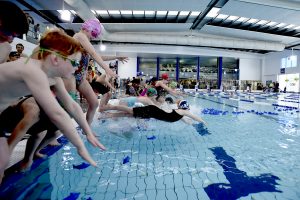
Sport is a very healthy factor in the development of a child, however, children have limitations and this needs to be considered by both parents and by coaches. Competitive planned sport 7 days a week may be excessive. Most children should be running around daily but this does not need to be planned sports. This means they can still have a casual kick around the yard but it is not planned or compulsory sport. Children may not tolerate the same physical stress as adults and injure more easily. Children go through periodic growth spurts and as a child grows the bones lengthen quicker than the adjoining muscles and other soft tissue. During this period children are at risk of soft tissue injuries. Children have unformed soft areas in their bones called growth plates and this is where the growth occurs. They also may have cartilage rather than bone where some tendons, muscles, and ligaments insert. These growth plates and areas of cartilage are weak spots and are prone to damage with overuse or trauma. Children grow and mature at different rates it should be ensured that they are not at risk especially with some contact sports such as football. An example of this may be an under 13 football side, in which some children may be very tall and developed and yet, other children may not yet have reached puberty. This difference in development can create an unfair playing field and increased risk of injury.
It is important to keep a close eye on children who are playing a lot of sport. Any persistent limping or complaints of pain in a child should be taken seriously and assessed by a qualified physiotherapist. This will help to ascertain whether it is an over-training issue or not. Talk to your doctor or the physiotherapists at Grange Physiotherapy should you have further concerns. Early intervention will often solve the problem and modification of activity will reduce further damage.

